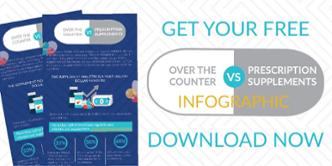Americans struggle with obesity and weight-related diseases today more than ever. The easy availability of processed foods and our busy lives combine to make a recipe for a health disaster. Add to that the effects of aging, and you’ve got one major weight crisis.
What Affects Weight Loss?
We all know the benefits of eating well and getting plenty of physical activity. But what happens when those two things aren’t enough? And why aren’t they enough? There’s much more to maintaining a healthy weight than exercising and counting calories.
The human body is a complex machine. To that end, here are five reasons diet and exercise may not always work, and what you can do to lose fat (and keep it off).
1. Insulin Surges Lead To Food Cravings
Research shows that high levels of insulin in your body increase cravings for carb-rich foods. And then it stimulates your liver to convert blood sugar (from all the sugary foods you’ve just eaten) into fat.
What leads to elevated insulin? Fiber deficiency. Adults need 30 to 50 grams of fiber a day, but most fall short. To keep your insulin under control, eat more foods that contain at least 5 grams of fiber per serving. Some examples include:
-
Apples
-
Avocados
-
Broccoli
-
Pears
2. Sleep Deprivation Increases Your Appetite
Being sleep deprived does more than affect your ability to function; it causes your body to up its production of ghrelin, an appetite-stimulating hormone. If that isn’t bad enough, lack of sleep slows production of the hunger-suppressing hormone, leptin.
To avoid sleep deprivation and prevent unnecessary snacking, try these tips:
-
Keep a regular sleep schedule;
-
Turn off all your electronic screens before bed;
-
Avoid drinking caffeine late in the day;
-
Sip chamomile or lemon balm tea an hour before hitting the hay;
-
Talk to your doctor about magnesium supplements.
3. Cortisol Slows Metabolism
The cortisol hormone causes calories to be stored as fat, slows your metabolism, triggers carb cravings, and stimulates your appetite — all of which cause weight gain. Additionally, cortisol leads to fat being stored in the abdomen, which has been found to increase the risk for serious health conditions like heart disease.
Where does this hormone come from? Chronic stress. Reduce stress by exercising, meditating, or taking up hobbies. If that’s not enough, talk to a health professional about adding cortisol-reducing supplements to your daily routine.
4. Inflammation Interferes With The Breakdown Of Fat
If you’re overweight, you’ve got ongoing inflammation in your body. Chronic inflammation reduces the effects of the appetite-suppressing leptin hormone, which causes you to eat more. This, in turn, leads to more inflammation. It’s a vicious cycle.
Inflammation also prevents your body from properly breaking down fat cells and causes these cells to grow larger. The best way to prevent or reduce inflammation is eat less meat and processed foods. Focus your diet on plant-based foods and include things like fish, vegetables, and olive oil.
5. Menopause Sabotages Your Metabolism
While there’s nothing you can do to stop menopause, you can certainly manage it. Women gain weight during menopause because of a significant drop in metabolism and a decline in estrogen.
Hormone therapy is often beneficial for maintaining a healthy weight as you age. Consider bioidentical natural hormone replacement, as this doesn’t pose the health risks associated with synthetic hormones.
Why Should You Work With Matrix Age Management?
At Matrix Age Management, we help people age well through fitness, nutrition, supplementation, stress and sleep management, and hormone replacement therapy. Our customized plans allow you to maintain the healthy, active lifestyle you love. Get in touch with us to learn more.






